#5: Shame is not a soft thing
But the curiosity and compassion I have about shame is
It’s wild to say “It’s been fascinating to read about shame”—I dove right in, y’all.
Shame shaped so much of my life. I think it shapes many of our lives. Looking at it is like dissecting how I got made. As I love myself into being, I want to know more and more about it. For me, recognizing and talking about shame deflates its power. More about that here, if you’re new.
Tell me in the comments:
Does this resonate with you? Unjustified shame sucks.
If you, too, want to nerd out on some research on shame, here are some references.1
References:
Bath, H. 2019. Pain and the Unspoken Emotion: Shame. International Journal of Child, Youth and Family Studies 10(2-3): 126–141. DOI: 10.18357/ijcyfs102-3201918856
Feiring, C. & Taska, L.S. 2005. The persistence of shame following sexual abuse: A longitudinal look at risk and recovery. Child Maltreatment, 10, 337-349.
Fisher, J. 2014. Shame and Self-Loathing in the Treatment of Trauma. Conference talk. Jack Hirose Seminars, Vancouver. May 2016.
Kaufman, G. 1996. The Psychology of Shame: Theory and Treatment of Shame-Based Syndromes (2nd ed.). New York, NY: Springer Publishing Company.
Lewis, H. 1988. The role of shame in symptom formation. In “Emotions and Psychopathology,” edited by Mclynes et al. (pp. 95-106). Boston, MA:
Springer US.
Scheff, T. J. 2003. Shame in self and society. Symbolic Interaction, 26(2), 239-262. https;//doi.org/10.1525/si.2003.26.2.239
Scheff, T. 2014. The ubiquity of hidden shame in modernity. Cultural Sociology, 8(2), 129-141. https;//doi.org/10.1177/1749975513507244



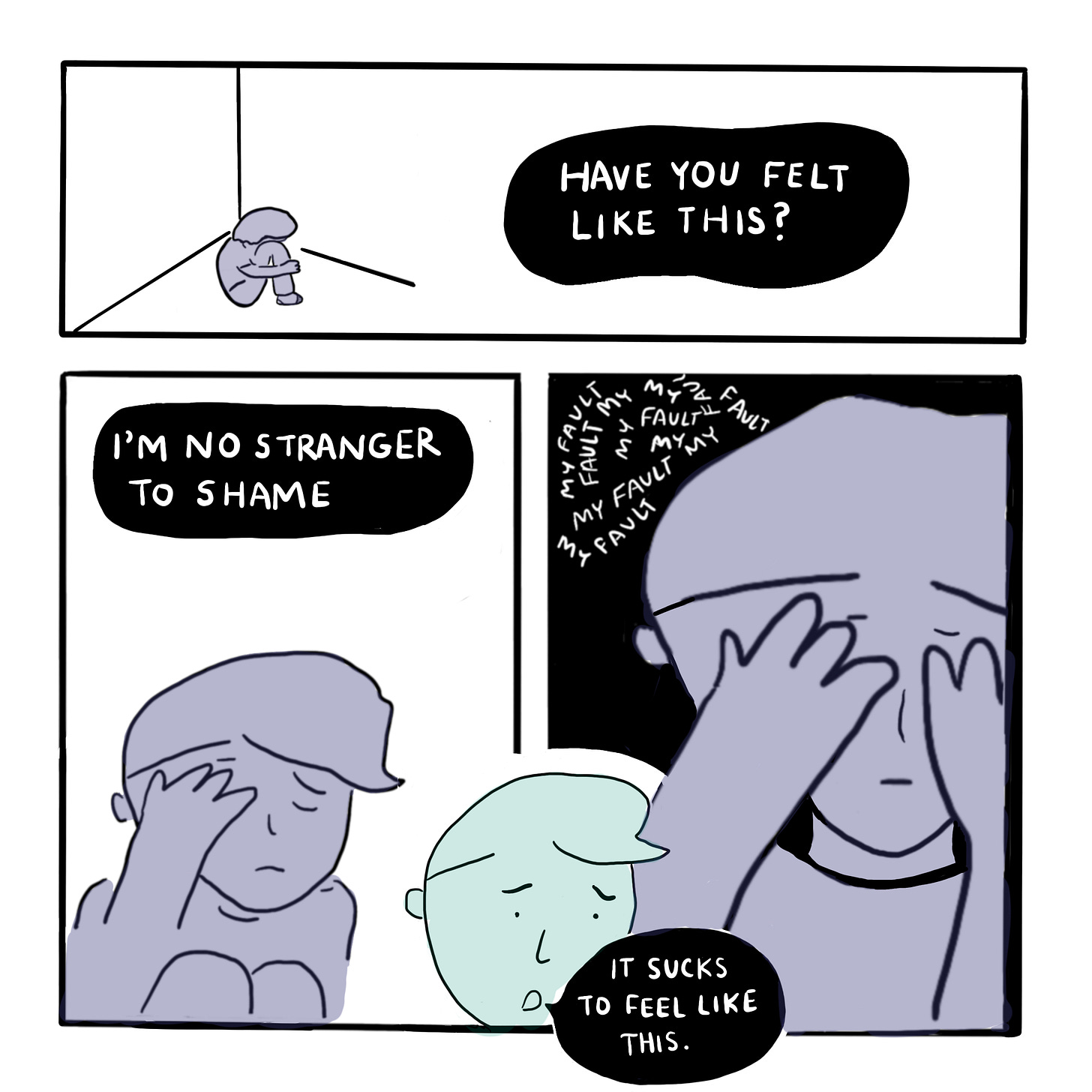
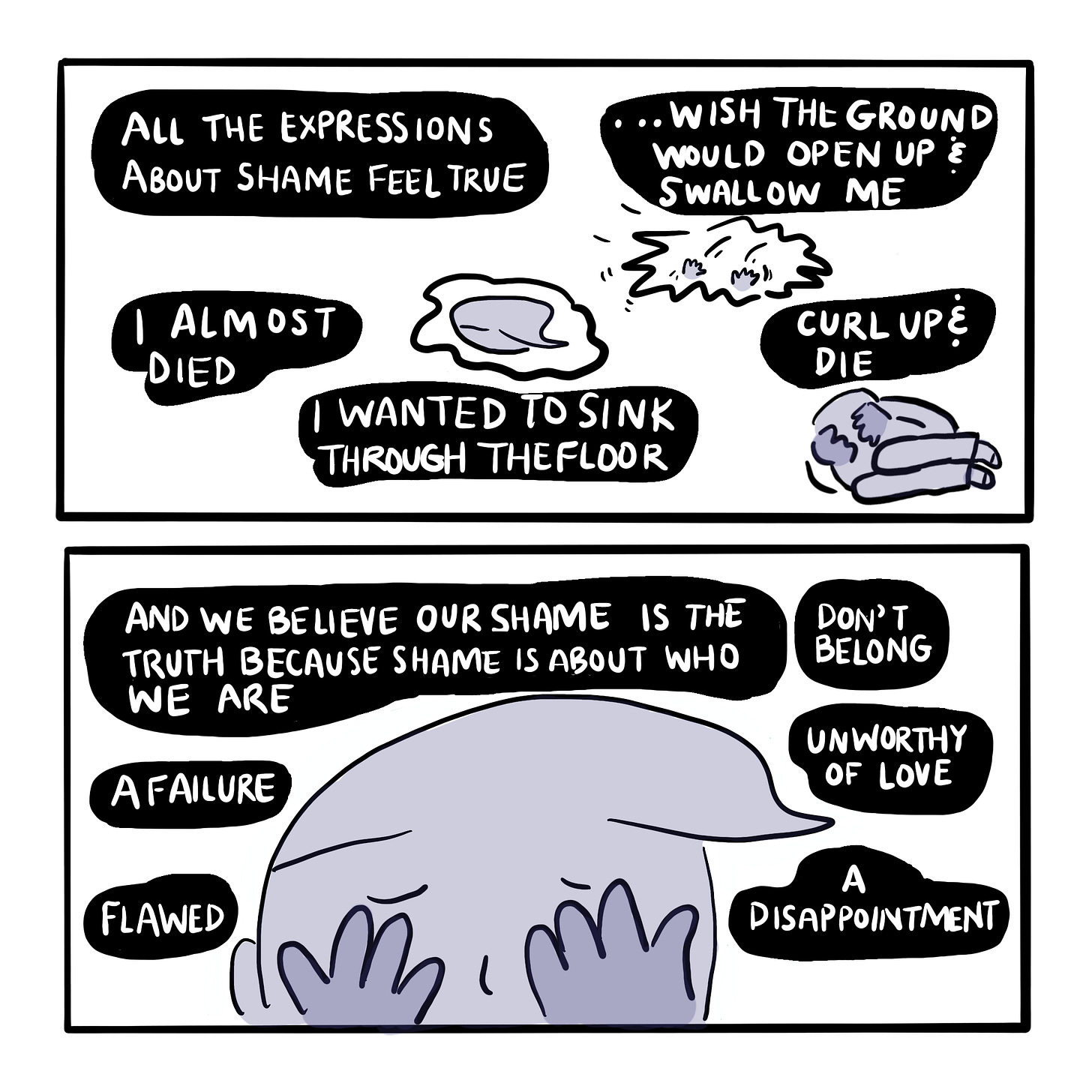
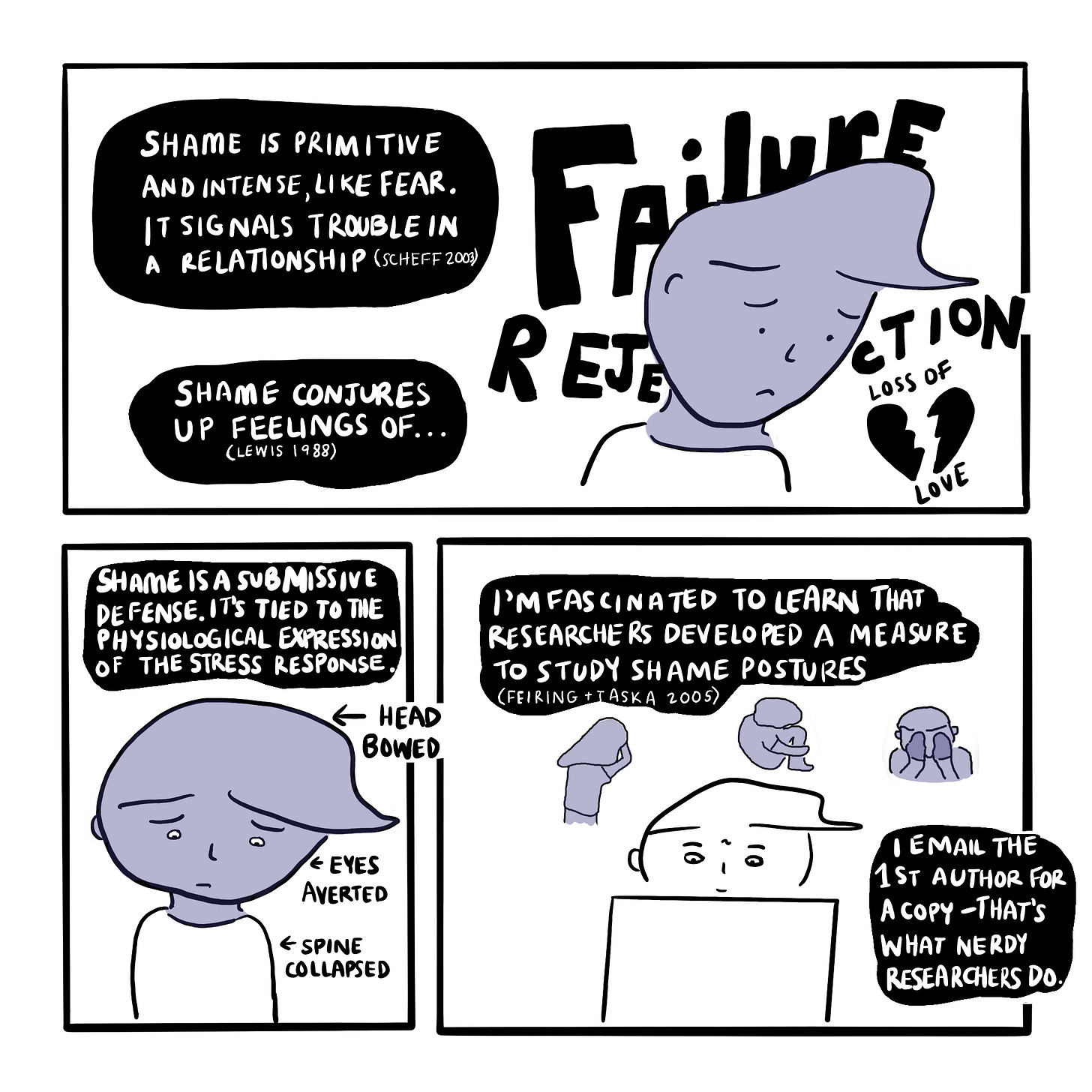
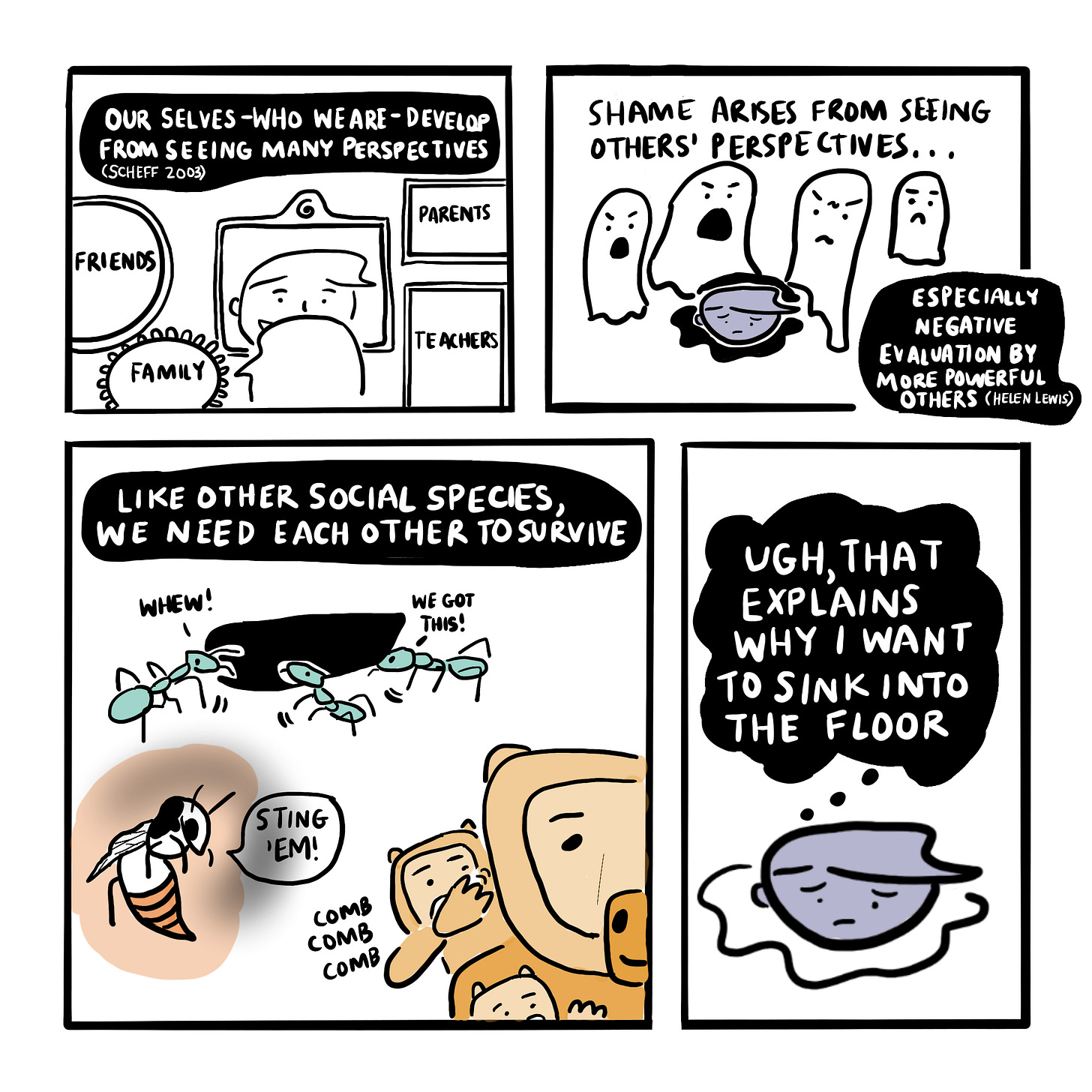
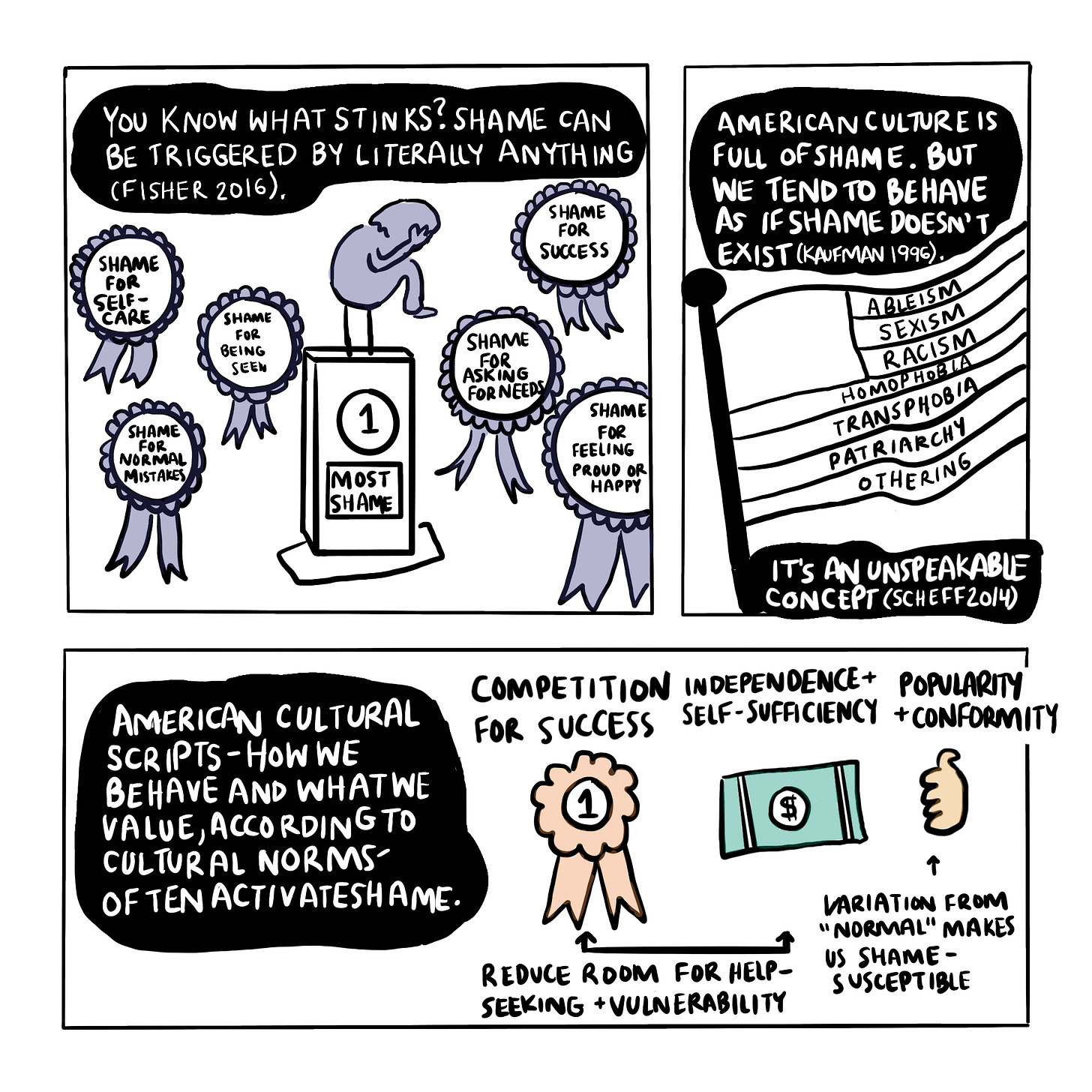
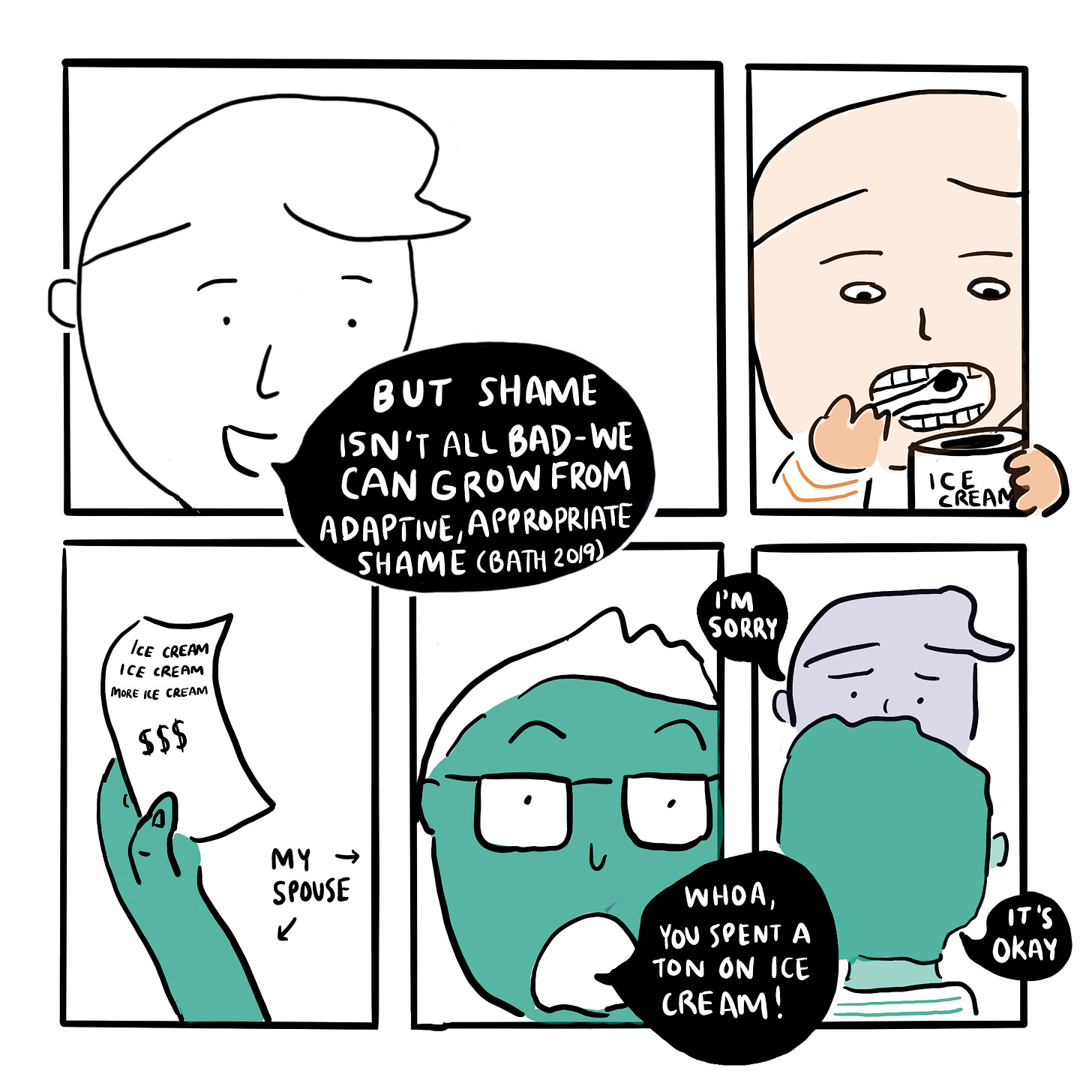
Thanks for drawings and for the references!